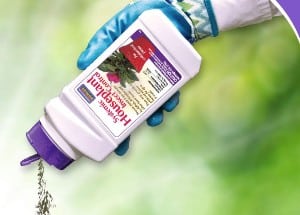Either you have a couple of home-growing plants, take care of your private garden, or a whole greenhouse, whiteflies can be a significant problem that destroys fresh sprouts and thus require a quick and effective solution. Being quite similar to aphids, whiteflies suck plants sap, destroying them and spreading diseases. It is quite hard to find their eggs, and due to the tiny size, they can go through the protecting mesh.
I have tried various methods of getting rid of whiteflies, using different chemicals, oils, insecticides, tapes, and other tools that help to protect the houseplants, garden, flowerbed, or get rid of whiteflies in the greenhouse. To help you become an effective whiteflies fighter, I have collected all key facts, tips, and methods in this article.
[wpsm_titlebox title=”How To Get Rid Of Whiteflies” style=”main”]
- Vacuum the infested plants with a small hand-held vacuum cleaner.
- Remove the most damaged leaves.
- Clean the remaining leaves and stem with water and use bug spray.
- Help plants fight pests with pellets.
- Check plants regularly for reinfestation.
- Choose a product for long-term plant protection.
[/wpsm_titlebox]
What are whiteflies
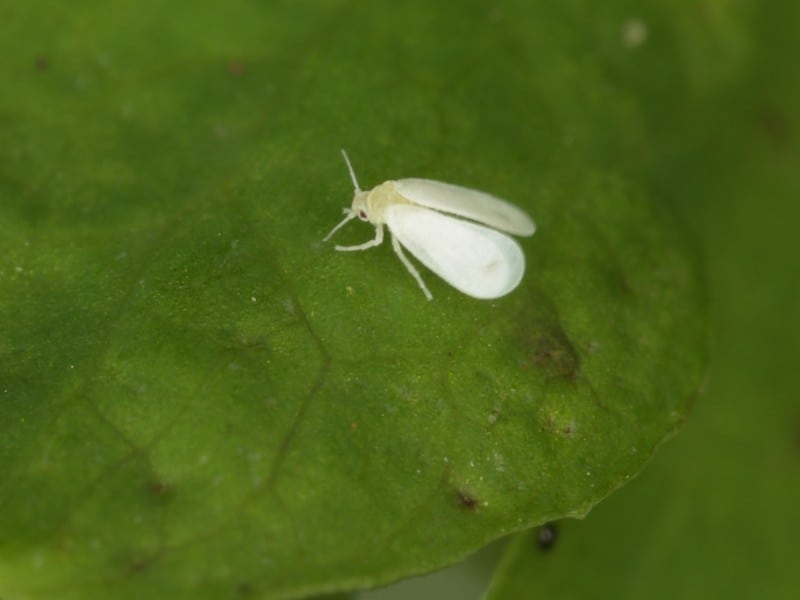
Whiteflies, or Aleyrodidae, are winged flying insects with soft triangular-shaped bodies that have a powdery-white color. Adult whiteflies are 1/16 inches long and have short antennas on their heads. These insects are very close to aphids and mealybugs and often found on the top of the plant, its leaves or stem.
The nymphs can be found on the leaves undersides. Both adult whiteflies and nymphs feed on sucking the young growth juices, damaging the plants, slowing down their growth, killing the leaves, and spreading dangerous diseases.
How do whiteflies appear in your garden
Whiteflies are widespread in all regions throughout the planet, but they do prefer to leave in a warmer climate close to their feeding territory. These insects usually appear in the territories without their natural predators, such as ladybugs, dragonflies, spiders, or lacewing larvae.
This might be caused by climate changes or the application of certain chemicals that kill these insects. In case you live in a dry climate or just forget to water your plants, this might cause drought stress for your garden or greenhouse, making them more vulnerable for such insects. The hot climate is also beneficial for whiteflies’ reproduction.

What are the dangerous whiteflies
All whitefly species can produce severe harm to the indoor and outdoor plants, as they suck the juices of fresh growth and destroy leaves, damaging the plants’ development and yield. While feeding, whiteflies produce a sticky substance or honeydew that cover the leaves. It is a source of fungal diseases, and it can also attract other harmful pests to your garden.
The main whitefly problem is destroying the leaves, weakening the plants and slowing their ability to carry out photosynthesis. Thus, leaves will turn yellow, while those covered with honeydew will look dark and dirty, and the plants’ growth will be stunted. While feeding, whiteflies leave toxic substances inside the phloem that harm the whole plant, followed by imbalanced plant metabolism and weakening that impact the development of flowers and fruit.
How to get rid of whiteflies
Now, let’s move to the effective methods of how to treat whiteflies, cleaning your plants from these harmful pests. There are several important steps to take in case you want to destroy whiteflies once and forever.
Step 1. Vacuum infected plants
First, you have to identify the infected plants by checking on the underneath of their leaves and at the top of the stem. Take a small hand vacuum, furniture cleaning nozzle, or a classic home vacuum cleaner and start sucking the pests from the infected leaves of each plant. Try not to miss a single leave, checking the plants from all angles.
Vacuum cleaning is the quickest and simplest way of whitefly treatment, and it can remove whiteflies on all stages of their development, starting from the first day you have mentioned the infestation. As soon as the cleaner’s bag is full of pests, securely get rid of whiteflies by sealing the bag into the hermetic plastic bag and putting it into the freezer for 24 hours. Only after that, you can throw all pests in the trash.
Step 2. Remove the most damaged leaves
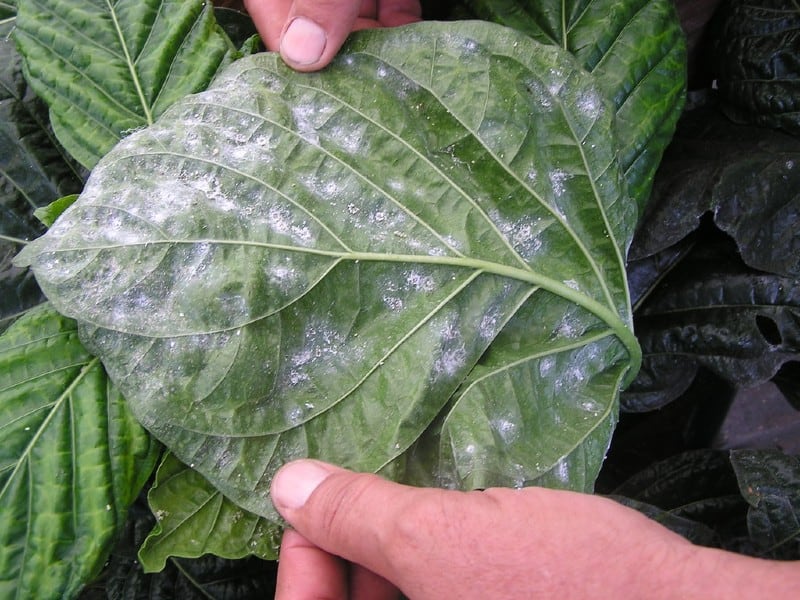
To help your plants heal quicker, cut off the most damaged leaves with garden clippers or by hands, leaving enough leaves not to kill the plants. Look on the underside of each leaf to find whitefly eggs, or seek for a sticky honeydew. The most damaged leaves might also become yellow and wilted.
Properly dispose of leaves after cleaning the plant: it is better to burn them or seal in a small airtight bag. It is also possible to freeze the bag prior to disposal. This is essential to prevent further infestation of your garden.
Step 3. Clean leaves and stem with spray
After removing the most infected leaves, you have to help the rest of your plant battle the infestation. Clean the rest of the leaves with water and use an insectile spray to kill the whiteflies that feed on them or just create a guarding barrier against these insects.
It is better to apply the spray in the evening when the peak sun activity has passed; in case you spray the plants in hot sunny weather, this might lead to the opposite effect, causing more damage to your plants.
Step 4. Help plants to battle pests
To protect plants from the inside, try spreading insectile granules across the soil under the plant. It is better to use granules just after or prior to whiteflies laying eggs. As peak activity of whiteflies comes in the early summer, usually after intense rainfalls, followed by egg-laying, this is the best period for its application.
Using insectile granules, don’t forget about granular application equipment: you can use either rotary-type or drop-type spreaders. For better results, the application of insectile granules has to be followed by rainfall or irrigation to move the active ingredients into the soil. Granules can be applied once, as their effect can last up to several months.
Step 5. Get rid of the newcomers
After providing a structured treatment to the damaged plants and getting rid of the most infected leaves, you have to protect them from the whitefly newcomers. There’s a high risk of these pests coming back in a short period after the treatment. To be able to quickly identify a new infestation and immediately battle it, try using sticky tape. Put the tape around the stem of a plant or across the ground, horizontally sticking it all over the area.
Check the tape regularly, and in case there are no pests, remove the tape because it can as well catch their predators, such as ladybugs. Apply sticky tape in case you have seen whitefly on houseplants as this is the easiest method to catch them inside the house without harming your indoor plants.
Spet 6. Think about prolonged protection
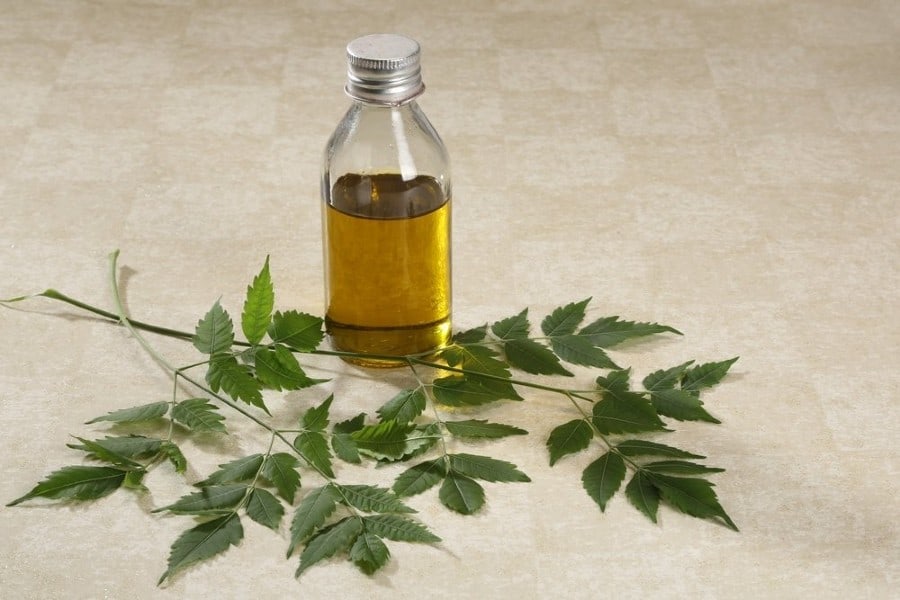
Think about how to protect your house, garden, or greenhouse from whiteflies for a long period in the future as your plants have to rehabilitate in a healthy environment. You have to use an organic insecticide that won’t harm your plants, animals, or other insects that are useful for your garden. In case you have some neem oil, it is an optimal natural tool to control whiteflies in your garden. Neem oil is a great white fly repellent, protecting your garden from pests for months.
To start the treatment, prepare your neem oil spray: mix 2 tablespoons of neem oil with 1 gallon of water (find the exact dosage on the pack). Remember that neem oil has a strong specific smell, but it will disappear as soon as the liquid dries out.
Prior to application, test it on one leaf of a plant and wait 24 hours to be sure it won’t harm it. Start the application in the evening or when there is no direct light or extreme temperatures to let the liquid sit into the plant and prevent the foliage burning. Do not spray neem oil on plants that are weak, seriously damaged, or stressed of drought.
Common active ingredients in whiteflies insecticides
Above organic neem oil (Azadirachtin), there are other ingredients that you seek for in the insecticides you want to use when fighting with whitefly infestation. Imidacloprid (Marathon, Merit) is one of the most commonly used insecticide ingredients that effectively eliminates the whitefly population.
Other effective ingredients are Bifenthrin, Acephate, and Acetamiprid – they are used as active ingredients in many insecticides that kill whiteflies and other insects that damage plants.
Top 3 Whitefly Treatments
To help you protect your plants and get rid of these pests, I have created a detailed review of the top whitefly management guidelines that are both effective and affordable. Each of them has its strong points, so read carefully and choose the one that will be a perfect match for your particular case.
1. Monterey Horticultural Oil Concentrate
[amazon box=”B0753M69PC” template=”vertical” tracking_id=”how-to-get-rid-of-whiteflies-20″ button_text=”Check price on Amazon” button_detail=”https://shareasale.com/r.cfm?b=410159&u=2583381&m=43235&urllink=www%2Edomyown%2Ecom%2Fmonterey%2Dhorticultural%2Doil%2Dp%2D2835%2Ehtml&afftrack=how%20to%20get%20rid%20of%20whiteflies” button_detail_text=”Check price on DoMyOwn”]
Specifications:
- Active Ingredient: Aliphatic Petroleum Solvent 80%
- Item Form: Spray
- Item Volume: 1 Gallons
- Item Weight: 5.15 pounds
- Item Dimensions LxWxH: 30 x 18 x 1 inches
- Target Species: Aphids, Leaf Miners, Leafhoppers, Thrips, Spider Mites, Scales, Whiteflies, Mealybugs And Many More
Monterey is a skilled manufacturer of various pest control products used by professional and amateur gardeners for effective plant protection. Their oil concentrates effectively battles spider mites, aphids, leafhoppers, whiteflies, and other pests.
LG Horticultural oil from Monterrey effectively kills whiteflies and other plant-eating insects, producing a poor effect on earthworms or caterpillars. This oil is effective for both adult pests and eggs, it destroys the population completely. It has a foliage protector that helps to protect damages corn, plant trees, and potatoes, pineapples, etc, being approved for organic gardening.
| Pros: | Cons: |
|
|
2. Organic Neem Bliss – Completely Natural Neem Oil
[amazon box=”B071DV3BLY” template=”vertical” tracking_id=”how-to-get-rid-of-whiteflies-20″ button_text=”Check price on Amazon”]
Specifications:
- 100% Pure Neem Oil
- Item Form: Oil, Spray
- Item Volume: 32 fl. oz.
- Item Weight: 2 Pounds
- Item Dimensions LxWxH: 7.5 x 5 x 2.5 inches
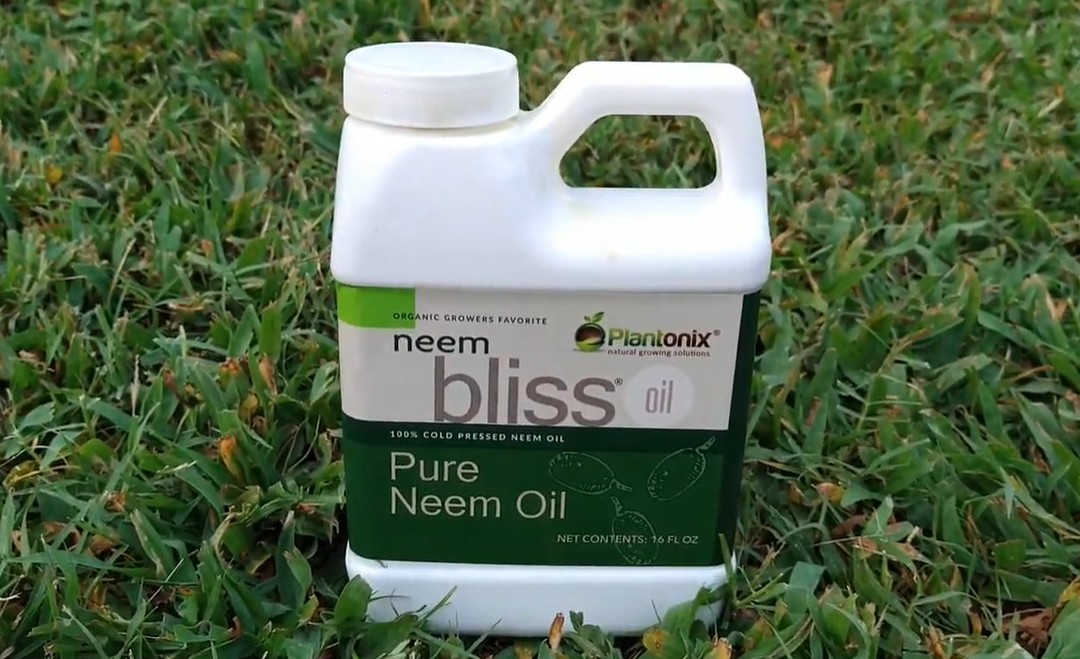
Plantonix produces various products for garden protection that are approved by organic gardeners. Their Organic Neem Bliss is made of 100% cold-pressed neem oil that is completely chemical-free. This is a perfect tool for organic farming, included in the OMRI list.
This product is a perfect outdoor and home remedy for whiteflies on plants, made of a natural ingredient, safe for your pets and children. It can be safely handled and is biodegradable, keeping your plants protected for a long time, but it is recommended to test it on a leaf before use. It has a strong garlicky odor, but it quickly disappears.
| Pros: | Cons: |
|
|
3. Bonide Imidacloprid Insecticide – Great Choice for Non-edible Plants
[amazon box=”B000BX1HKI” template=”vertical” tracking_id=”how-to-get-rid-of-whiteflies-20″ button_text=”Check price on Amazon”]
Specifications:
- Active Ingredient: Imidacloprid 0.22%
- Item Form: Granules
- Item Weight: 0.7 Pounds
- Item Dimensions LxWxH: 2.8 x 2.8 x 6.3 inches
- Target Species: Mealybug, Termite, Aphids, Japanese Beetles, And More
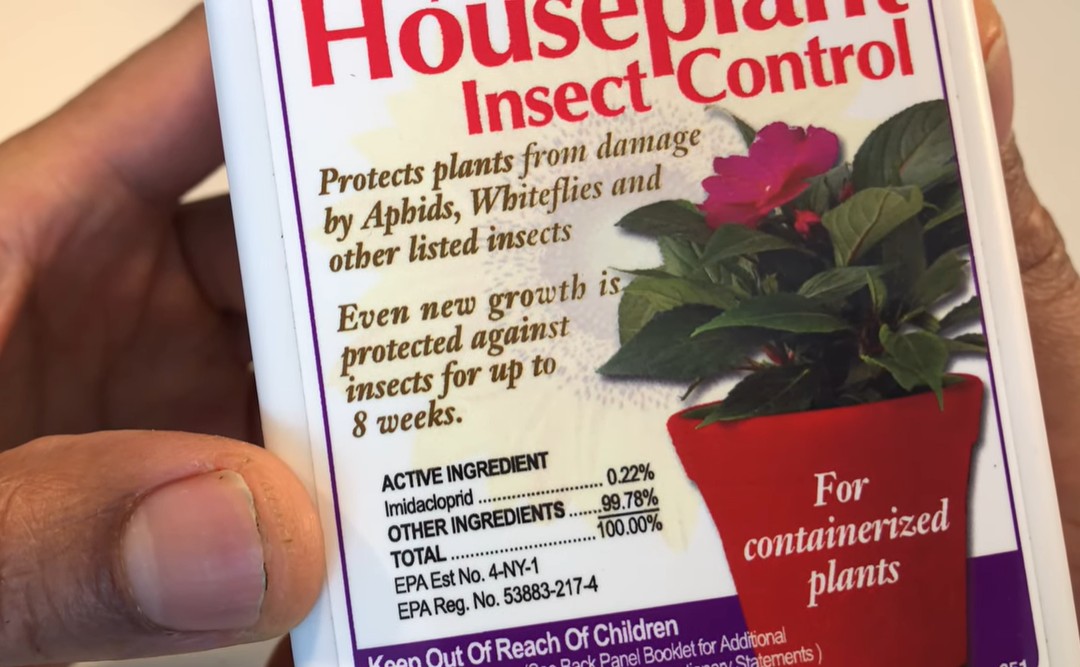
Bonide is a US-based leader in producing house and garden pest control products. Founded in 1926, this is the family-owned brand focused on providing their clients with top-quality products.
Systematic Houseplant Pest Control for Bonide offers ready-to-use insectile granules killing pests that harm indoor plants. This product has no odors, being perfect for in-house use. It destroys not only whiteflies but also aphids, termites, Japanese beetles, and other pests. Keep it away from pets and children, and use it for non-edible plants only. It is super easy to use: just put granules into the soil, and the granules will be quickly absorbed into the roots. This way granules will help plants to get rid of whiteflies.
| Pros: | Cons: |
|
|
Key questions for effective whiteflies treatment
When you have mentioned signs of whitefly infestation in your garden, it is important to thoroughly study the basic knowledge about these pests and how to kill whiteflies. I have collected the most important questions that you have to look through before starting your fight with these insects.
What is the cause of whiteflies?
Whiteflies prefer to live in a warm climate, close to their feed source. Drought is the best stimulus for their eggs laying, which can also harm plants and make them more vulnerable for these pests. If there are no whiteflies’ predators, such as spiders or ladybugs, this might cause the rapid development of their population.
Are whiteflies attracted to light?
As all fly species, whiteflies are also attracted to light. It is possible to apply LED emitting diode (LED) and UV lamps trapping the greenhouse whitefly to get rid of these pests. Thus, light traps can be used to catch whiteflies, but it is not as effective as methods connected to their feeding area.
Where do white flies come from?
Some of the most common whiteflies sources are purchased plant materials, although they might come from their wintertime hiding areas or just from the outdoors. The neighbors’ garden, fresh flower bouquet, or a new seedling can all be the whiteflies’ sources.
[su_note note_color=”#e5e2d4″]Related post: Best Gnat Killers Tested & Reviewed[/su_note]
Will vinegar kill whiteflies?
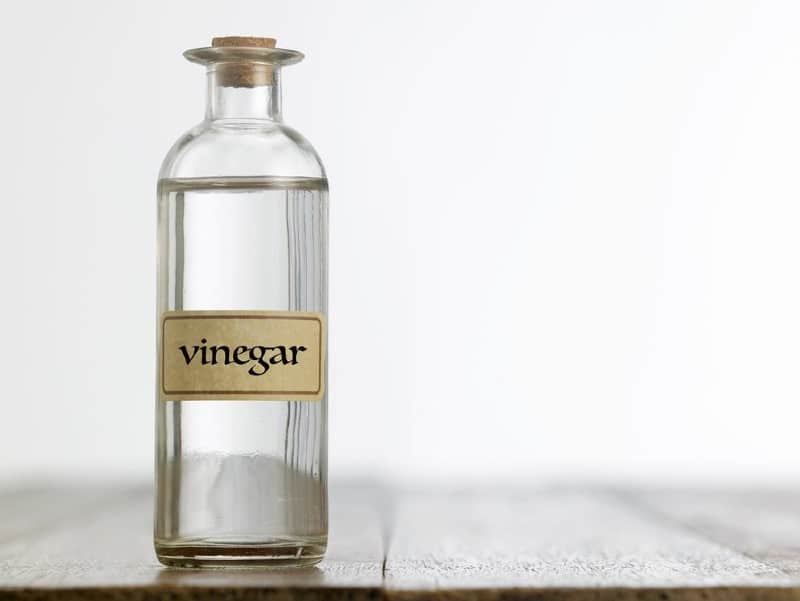
Yes, white vinegar can be quite effective against whiteflies. You can create your own insecticidal spray by mixing white vinegar with water, adding insecticidal soap, baking soda, and dish soap to spray it on the infected plants. Get ready for regular spraying of your plants and be careful as it might as well kill harmless insects.
[su_note note_color=”#e5e2d4″]Related post: How to Get Rid of Cluster Flies [/su_note]
Choosing the Best Method of Whitefly Treatment
A lot of people ask me how to get rid of whiteflies because these pests produce serious harm to our plants. As you can see, there are several effective methods of whitefly treatment that will help you eliminate these pests once and forever. I prefer to use neem oil as it is 100% organic, safe for children and pets, and can be used for managing whiteflies on indoor and outdoor plants.
What is your most preferred way to treat whiteflies? How long did it take to kill all the whiteflies population? Share your experience in the comments.

References:
- Whiteflies in the Greenhouse (University of Connecticut):
http://www.ladybug.uconn.edu/FactSheets/whiteflies-in-the-greenhouse.php - Controlling Whiteflies in your Garden(University of California):
https://ucanr.edu/sites/VCMG/Controlling_Whiteflies_in_Your_Garden/ - Whiteflies Management Guidelines(University of California Agriculture & Natural Resources):
http://ipm.ucanr.edu/PMG/PESTNOTES/pn7401.html - Suitability of a UV Lamp for Trapping the Greenhouse Whitefly(Institute of Horticultural and Biosystems Engineering):
https://ecommons.cornell.edu/bitstream/handle/1813/10426/BC%2005%20004%20Tantau%20final%20Nov2005.pdf%3Bjsessionid%3DA828ECD97170D3DA766D7C97004A25BE?sequence%3D1 - Managing Whiteflies on Indoor and Outdoor Plants (University of Missouri):
https://extension.missouri.edu/publications/g7275

